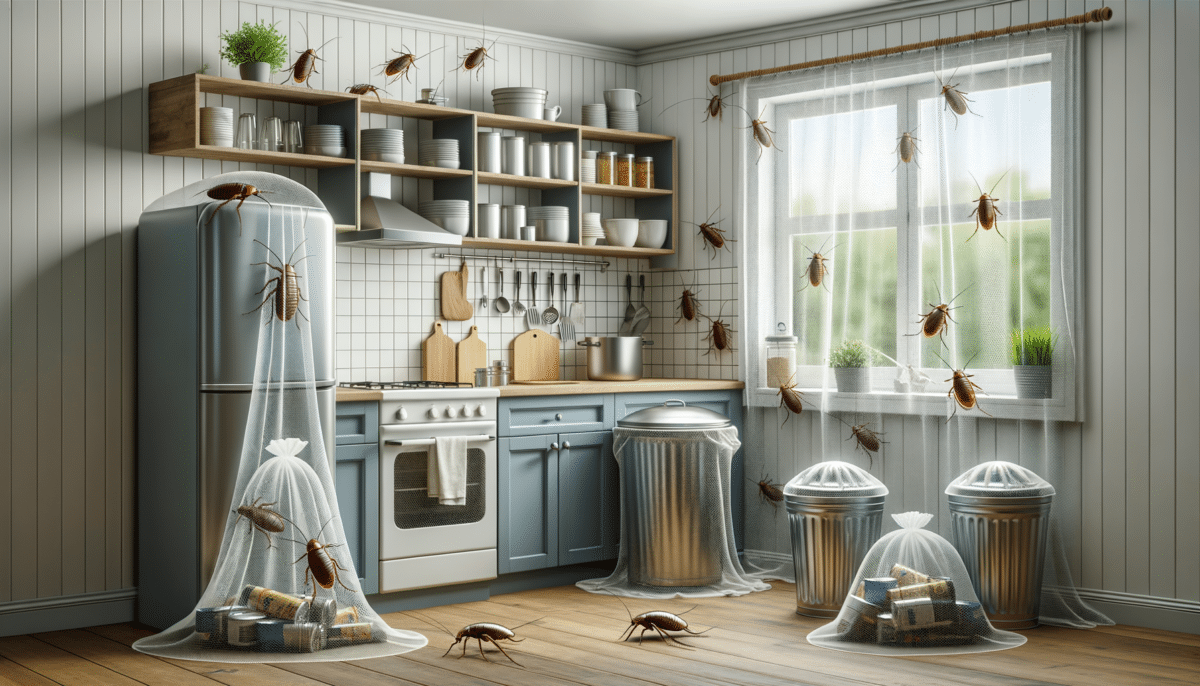Introduction to Pest Control
Pest control is an essential aspect of maintaining a healthy and comfortable living environment. Unwanted pests can cause significant damage to property, pose health risks, and create discomfort in homes and businesses. Understanding the importance of pest control and the methods available can help individuals effectively manage and prevent pest infestations.
Effective pest control involves identifying the type of pest, understanding their life cycle, and implementing strategies to manage or eliminate them. These strategies can range from chemical treatments to natural remedies, each with its own advantages and disadvantages. In this article, we will explore various aspects of pest control, offering insights and tips to help you maintain a pest-free environment.
Understanding Common Household Pests
Household pests come in various forms, each with unique characteristics and challenges. Common pests include insects such as ants, cockroaches, and termites, as well as rodents like mice and rats. Understanding these pests’ behaviors and habitats is crucial for effective control.
For instance, cockroaches are known for their resilience and ability to thrive in various environments. They are nocturnal and often hide in dark, moist areas, making them difficult to detect. Ants, on the other hand, are social insects that live in colonies and can quickly invade homes in search of food.
Rodents, such as mice and rats, are notorious for causing structural damage and spreading diseases. They are highly adaptable and can squeeze through small openings to access food and shelter. Recognizing the signs of a rodent infestation, such as droppings or gnaw marks, is vital for early intervention.
By understanding the habits and characteristics of these common pests, homeowners can implement targeted strategies to prevent and control infestations effectively.
Methods of Pest Control
There are various methods available for controlling pests, each with its own set of benefits and limitations. Chemical treatments, such as pesticides, are among the most common and effective methods for eliminating pests. However, they can pose risks to human health and the environment if not used correctly.
Natural remedies and organic pest control methods are gaining popularity as safer alternatives. These methods often involve using natural substances or biological controls to manage pest populations. For example, introducing natural predators or using plant-based repellents can help reduce pest numbers without harmful chemicals.
Integrated Pest Management (IPM) is another approach that combines multiple strategies to achieve sustainable pest control. IPM focuses on long-term prevention and considers environmental factors, pest biology, and available control methods. This holistic approach aims to minimize risks to humans and the environment while effectively managing pest populations.
Choosing the right pest control method depends on various factors, including the type of pest, the severity of the infestation, and individual preferences. Consulting with a pest control professional can help determine the most appropriate and effective strategy for your situation.
Preventive Measures for Pest Control
Prevention is a critical component of effective pest control. By taking proactive measures, homeowners can reduce the risk of pest infestations and maintain a healthy living environment. Here are some preventive strategies to consider:
- Seal entry points: Inspect your home for gaps, cracks, and openings that pests can use to enter. Seal these entry points with caulk or weatherstripping to keep pests out.
- Maintain cleanliness: Regularly clean your home, paying special attention to areas where food is prepared and stored. Keep counters, floors, and cabinets free of crumbs and spills.
- Proper waste management: Dispose of garbage regularly and use sealed containers to prevent attracting pests. Compost bins should be kept away from the house and properly maintained.
- Eliminate standing water: Pests, such as mosquitoes, breed in stagnant water. Ensure that gutters, drains, and other areas prone to water accumulation are kept clean and free of debris.
- Regular inspections: Conduct routine inspections of your home and property to identify signs of pests early. Early detection can prevent minor issues from becoming major infestations.
By implementing these preventive measures, homeowners can significantly reduce the likelihood of pest problems and protect their home from potential damage and health risks.
When to Call a Professional
While many pest control tasks can be managed by homeowners, there are situations where professional intervention is necessary. Knowing when to call a pest control expert can save time, money, and stress.
Severe infestations are a clear indicator that professional help is needed. If you notice large numbers of pests or widespread damage, it’s time to contact a pest control service. Professionals have access to specialized tools and treatments that are not available to the general public, making them better equipped to handle severe cases.
Additionally, certain pests, such as termites and bed bugs, require expert knowledge and techniques for effective eradication. These pests can cause significant damage and are notoriously difficult to eliminate without professional assistance.
Health concerns are another reason to seek professional help. If you or your family members are experiencing allergic reactions or other health issues related to pests, a professional can assess the situation and provide safe and effective solutions.
Finally, if you are unsure about the type of pest or the most appropriate control method, consulting with a professional can provide valuable guidance and peace of mind. Pest control experts can accurately identify pests, assess the severity of the infestation, and recommend tailored solutions to address the problem effectively.
Conclusion: Keeping Your Home Pest-Free
Maintaining a pest-free home requires a combination of knowledge, prevention, and timely intervention. By understanding common pests and implementing effective control methods, homeowners can protect their property and health from the negative impacts of infestations.
Preventive measures play a crucial role in reducing the risk of pest problems, while professional assistance is invaluable for severe infestations or challenging pest types. With the right approach, individuals can enjoy a comfortable and healthy living environment free from the nuisances and dangers of pests.
Remember, a proactive and informed approach to pest control not only safeguards your home but also contributes to a healthier community and environment.
